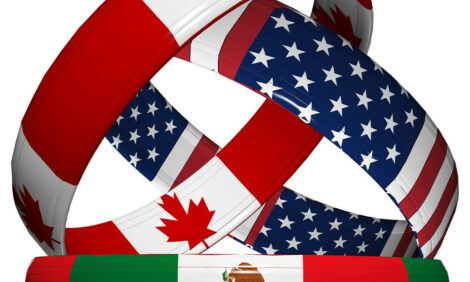



Managing consumer demand and keeping pork production going amidst COVID-19
The Research Lead with Agri-Food Economic Systems says the surge in consumer demand at supermarkets as the result of COVID-19 has created a difficult to manage situation.An Agri-Food Economic Systems Independent Agri-Food Policy Note examines the roles of government and industry in managing the pandemic challenges caused by COVID-19. Speaking to Farmscape, Dr Al Mussell, the Research Lead with Agri-Food Economic Systems, says this is an unprecedented situation.
"A lot of our emergency planning in agriculture contemplates livestock disease emergencies, border closures, and in some case plant diseases, but a widespread pandemic such as we are experiencing right now has far-reaching consequences that we haven't been focused on," says Dr Mussell.
"These surges in demand at the grocery store are difficult to handle all through the supply chain.
"They create sharp increases in demand. But, at some point as people lock themselves down in their homes, they’re going to have fewer trips to the grocery store.
"That'll then, you would think, begin to dampen demand or, more than anything else, as people buy forward, eventually they've got enough and they slow down their buying.
The other one I would mention and bring into this that is of concern for us, particularly in western Canada but elsewhere as well, is exports and, indeed, imports.
"Livestock and poultry industries will be experiencing the worst of these difficulties involving the import and export of products.
"One of the things that happens is, as you get absenteeism, that comes into your logistics system, your trucking, your dock workers, everybody involved in the administration of imports and exports.
"The other thing we have to worry about a little bit is that we import a significant amount of product. That's everything from coffee, tea, orange juice, the food products as well as a good deal of feed ingredients and pesticide products.
"We worry about the logistics there but then there is also a sense that countries that export those products will begin to think a little that they need to feed themselves or supply themselves first before they share their products with others."
Dr Mussell says you can read about this happening with medical supplies already and that this could soon continue into agriculture and food.
"We've got an ag and food supply chain that works very smoothly so we're starting from a good spot but now we're confronting challenges we've never seen before.
"Government and industry are going to have to work together on determining solutions for the issues we are experiencing - whether that be through regulations that need to be adjusted or waived for a period of time; or cross-training employees to ensure absenteeism does not impact production lines."






